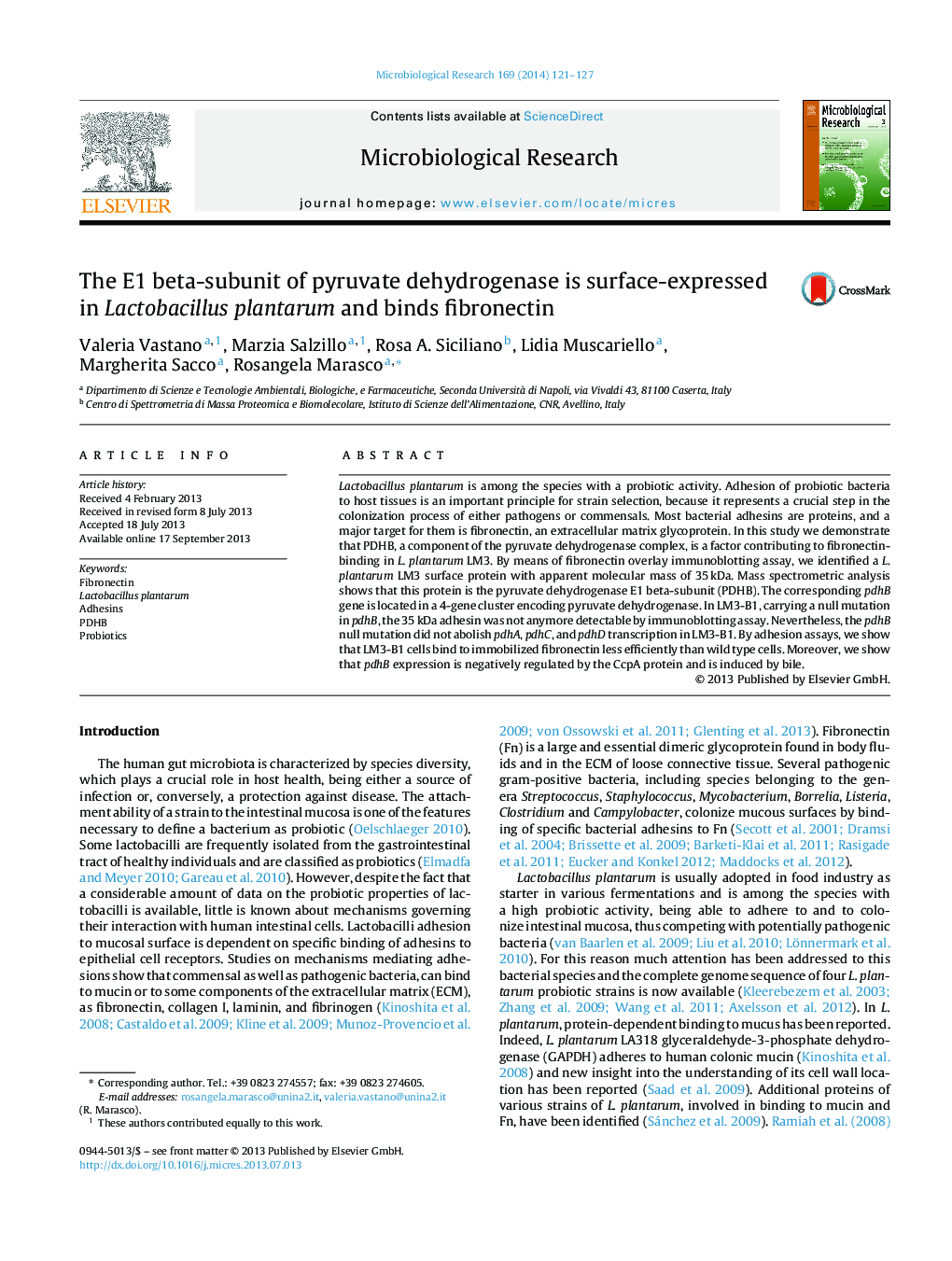| Article ID | Journal | Published Year | Pages | File Type |
|---|---|---|---|---|
| 2092275 | Microbiological Research | 2014 | 7 Pages |
Lactobacillus plantarum is among the species with a probiotic activity. Adhesion of probiotic bacteria to host tissues is an important principle for strain selection, because it represents a crucial step in the colonization process of either pathogens or commensals. Most bacterial adhesins are proteins, and a major target for them is fibronectin, an extracellular matrix glycoprotein. In this study we demonstrate that PDHB, a component of the pyruvate dehydrogenase complex, is a factor contributing to fibronectin-binding in L. plantarum LM3. By means of fibronectin overlay immunoblotting assay, we identified a L. plantarum LM3 surface protein with apparent molecular mass of 35 kDa. Mass spectrometric analysis shows that this protein is the pyruvate dehydrogenase E1 beta-subunit (PDHB). The corresponding pdhB gene is located in a 4-gene cluster encoding pyruvate dehydrogenase. In LM3-B1, carrying a null mutation in pdhB, the 35 kDa adhesin was not anymore detectable by immunoblotting assay. Nevertheless, the pdhB null mutation did not abolish pdhA, pdhC, and pdhD transcription in LM3-B1. By adhesion assays, we show that LM3-B1 cells bind to immobilized fibronectin less efficiently than wild type cells. Moreover, we show that pdhB expression is negatively regulated by the CcpA protein and is induced by bile.
